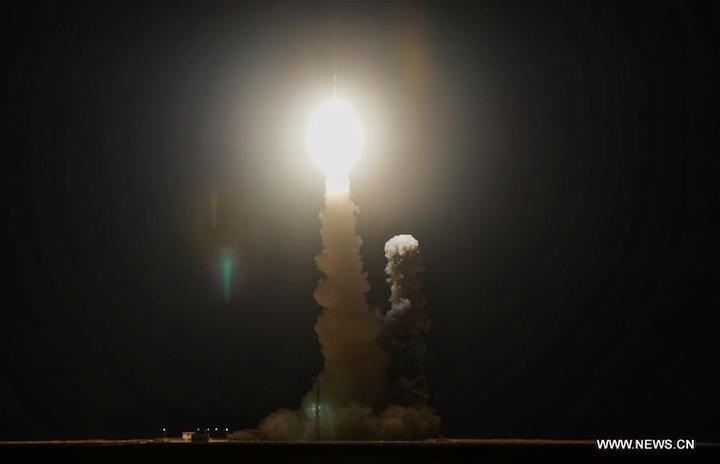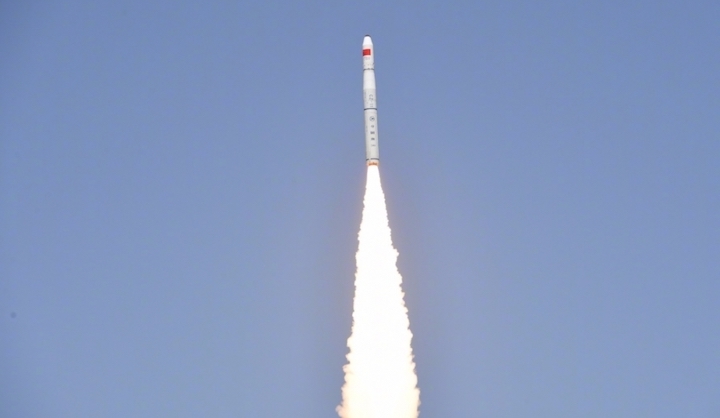22.12.2018

A Long March-11 rocket carrying a tech-experimental satellite as part of the Hongyun Project, a low-orbit broadband communication satellite system, blasts off from the Jiuquan Satellite Launch Center in northwest China at 7:51 a.m. on Dec. 22, 2018. The satellite successfully entered its preset orbit. The successful launch signifies the substantial progress of China in mapping the low-orbit broadband communication satellite system. (Xinhua/Li Jin)
JIUQUAN, Dec. 22 China launched a tech-experimental satellite as part of the Hongyun Project, a low-orbit broadband communication satellite system on Saturday morning.
A Long March-11 rocket carrying the experimental satellite blasted off from the Jiuquan Satellite Launch Center in northwest China at 7:51 a.m.. It successfully entered its preset orbit.
It was also the first satellite of the Hongyun Project. The successful launch signifies the substantial progress of China in mapping the low-orbit broadband communication satellite system, said developer China Aerospace Science and Industry Corporation (CASIC).
Quelle: Xinhua
+++
Chinese Long March 11 launches with the first Hongyun satellite

China conducted another orbital launch using a Long March-11 solid fuel rocket on Friday. The launch took place from a mobile launch platform from the Jiuquan Satellite Launch Center at 23:51 UTC.
Onboard the LM-11 rocket was the first Hongyun satellite.
Developed by the China Aerospace Science and Industry Corporation (CASIC), this is the fist satellite of a vast space-based communications network capable of covering every corner on the Earth, including the Arctic and Antarctica. The satellite mission is to verify low-orbit broadband communication technologies to be used on the Hongyun satellite constellation.
Announced by CASIC in September 2016, the Hongyun project has the goal of building a space-based communications network of 156 communications satellites into low Earth orbit, at an altitude of 160 to 2,000 km. Each satellite of the network will be able to transmit 500 megabytes of data per second. It will become operational in 2022.

Currently the only render of the satellite – via Chinese social media
After the tests with the first Hongyun satellite, another four satellites will be launched by the end of 2020 to form a small network for the project’s trial run. Operational satellites will be launched after the first tests of the baseline network prove successful.
When the Hongyun project is complete, it will cover the whole world and offer round-the-clock communication services to users in polar regions, who now have difficulties accessing telecommunication and internet services, even from on board an aircraft or a ship or in a remote area.
